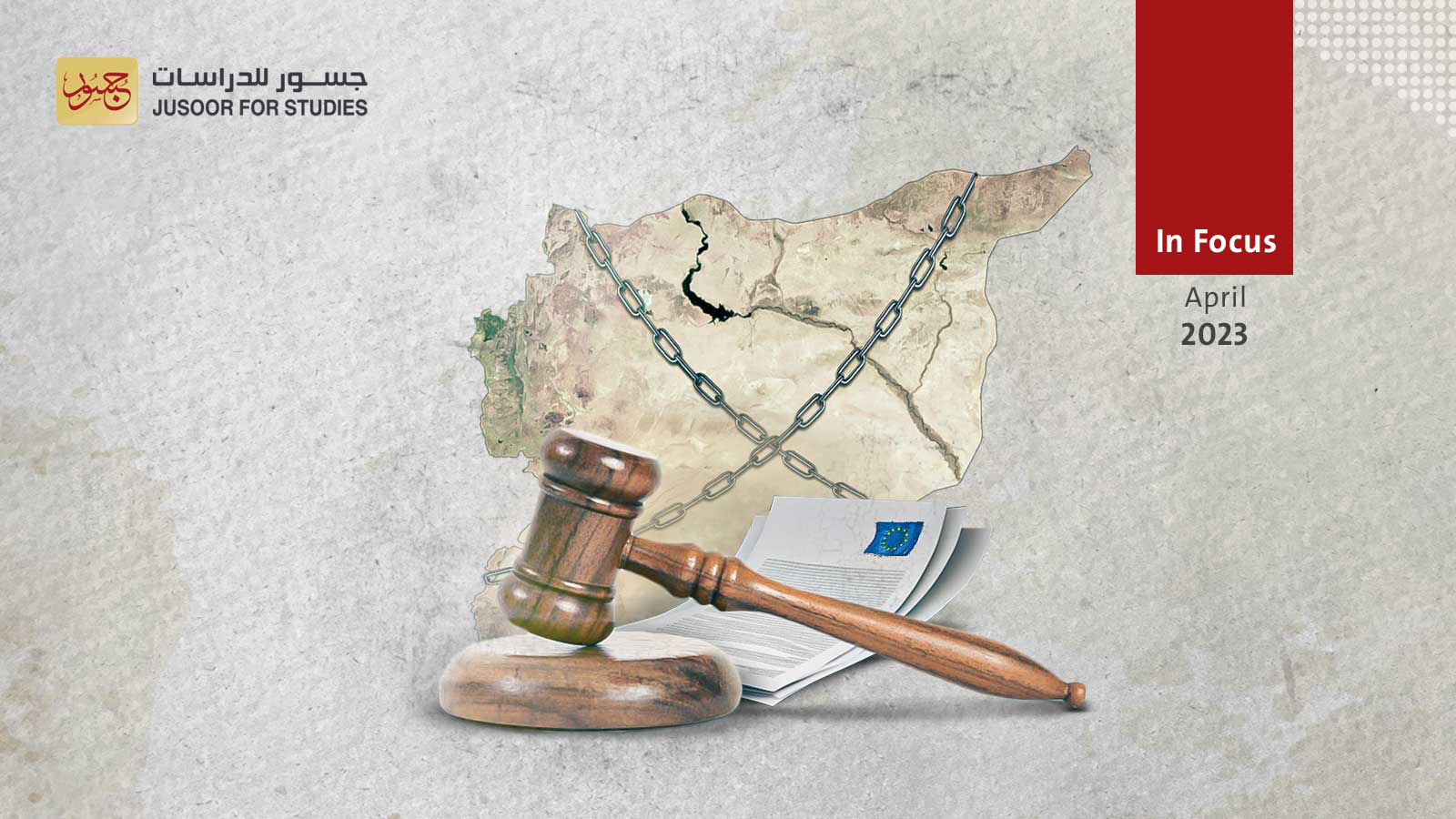What’s new in the recent European package of sanctions on the Syrian regime?
On April 24, 2023, the European Union decided to list 25 individuals and 8 entities in the framework of EU restrictive measures in view of their involvement in drug production and trafficking, as well as their involvement in violations against civilians in Syria.
In fact, the recent package of sanctions adopted by the EU are characterized by:
Firstly, bringing consistency to the sanctions, as there has been a connection between drug production and trade, especially Captagon, on the one hand and pursuing policies of repression against the civilian population on the other. Accordingly, the European Council in its statement confirmed that the Syrian regime utilises the drug industry and trade to enrich its inner circle and provide it with revenue that contributes to its ability to maintain its policies of repression against the civilian population,” the Council said.
Secondly, the sanctions targeted businesspeople with close ties to the Assad family, as well as persons associated with the Syrian army and the Syrian military intelligence associated with the Tadamon Massacre, let aside officials of security companies and militia leaders” the Council added.
Thirdly, the sanctions directly target the regime not the Syrian citizens; as the list includes figures from the Assad family or those have close ties to it, such as Jihad Barakat, the commander of the Syrian regime's Maghawir Al-Ba'th militia and is married to the cousin of Syrian President Bashar Al-Assad, Waseem al-Assad, Bashar al-Assad's cousin, who is linked to the Fourth Division, as well as Mudar Rifaat al-Assad and Mohammad Shalish. All the aforementioned individuals are considered part of the inner circles of the regime and the main beneficiaries of drug trafficking and money laundering. This confirms that the sanctions are squeezing the regime and not targeting the Syrian people.
Fourthly, imposing such sanctions tells how far Bashar al-Assad poses a threat to Europe, as the European Union deals with the regime and Russia as dangerous entities. Moreover, the list of designated individuals and entities included the names of Russian companies active in Syria, such as "Stroytransgaz", or Syrian companies associated with Russia such as Al-Areen Foundation, Al-Qalaa Security Company, General Company for Phosphates and Mines, Al-Jabal Security and Protection Services Company, and Aman Security Company. In fact, all the above-mentioned companies are recruiting fighters for the Russian "Wagner" group, which participates in the invasion of Ukraine, as the latter is supported by the European Union and the United States."
Finally, the sanctions adopted by the European Union are quite important; especially since they coincide with some Arab and regional countries movements to normalize relations with the regime.
Such a step by the EU also stresses that the Western states got tired of a regime as such due to the latter’s strong ties with Russia and its support for the Russian invasion of Ukraine. This is likely an attempt to influence the behaviour of the regime and deter its threatening activities to European national security as well."








